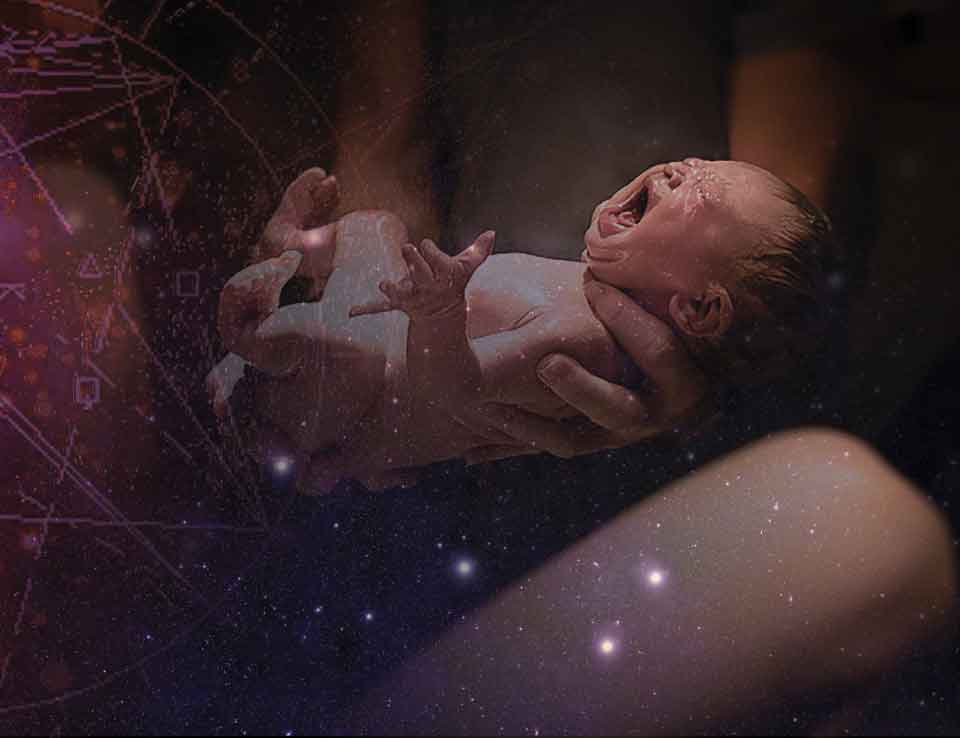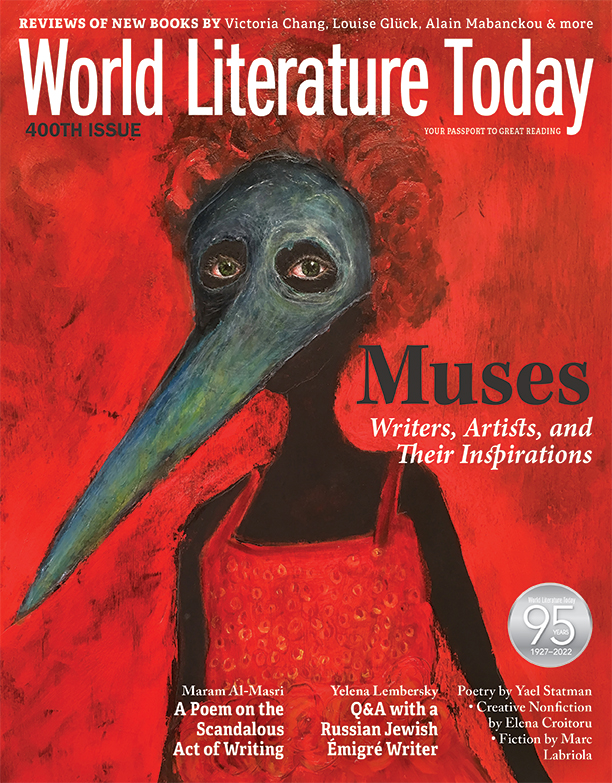Seven Names for Light

A woman gives birth in a room where all the windows are covered with pages of a book to be burned. The woman inside, the women outside: all wait for the author.
Luz is going to scream. She can’t drag her body any closer to the bed, so it will happen where she fell. There is a sound she thinks has come from her. Down her thighs she feels something she knows is not what it feels like. Now a faint odor of semen. Her black hair is dripping. The lights shut off again. There have been rolling blackouts since the night it happened. She’s covered all the windows of her third-floor apartment with pages from the book they will eventually burn. She can’t let the women see her. Luz pulls off her towel. Her eyes haven’t adjusted to the dark. Between her legs little drops slowly cool into glass eyes on the tiles. The blood on the floor would have been red.
There is a shock in her waist. Her body jumps like falling in her sleep. This is her first so Luz doesn’t know what hurts when. She can’t get to her phone. Her heels slip as she pushes back towards the bed. The water on the floor isn’t water. Luz can’t breathe anymore. They tell you to breathe. Just make it to the bed. She can’t let the women hear her. Luz gropes around the dark floor for something to put in her mouth. Her apartment is half empty now. Just the things that survived. She can still see the rusted steel bars like fossilized ribs where seven months ago pieces of the concrete ceiling collapsed in the earthquake. She bites down on her lip until she can taste it. If this were a dream it would be a symbol of something.
It wasn’t hard for them to find her. He never should have used the real names of the streets in the novel. They won’t leave her alone now they know the father is Gabriel Luria. Her apartment has already been broken into three times. Looted for charms or souvenirs. They took coins, earrings, forks and knives, her lipstick, hairbrush. Anything she touched. Even pulled the sheets off her bed. Luz doesn’t want this to happen here. Those strange women waiting in the street. It’s too soon. She has six days’ clothes packed in the suitcase on her bed. But Luz is one week early. She shuts her eyes tight and mouths her list of baby names that mean colours. Her favourite boy’s name means red.
Someone outside must have heard the voice of a woman through the wall screaming God.
This is when Luz screams. Someone outside must have heard the voice of a woman through the wall screaming God. But she knows that at a certain distance she is not a woman screaming. She is just a sound someone thought they heard. Blamed on other things. If you’re far enough away, even the worst earthquake in living memory is just a little fetal kick. She listens. No one is coming. She knocks the candle and lighter off the table with the tips of her fingers. Flicks the wheel and it lights. In the book, Gabriel says to her, with your clothes off, I count seven different colours. He says the blue blood in the veins on your legs is not really blue. It’s just the behaviour of light coming and going from your skin. Of everything we don’t know we mostly don’t know about light.
Luz bites down hard on the back of her hand. Trying to siphon the pain. Don’t let them hear. Day and night they’re out there with their dog-eared copies of the book, famous around the world because the day the earthquake happened was the same day the novel said it would happen. The book says a comet from the genitals of the constellation Leo entered the womb of the constellation Virgo in a celestial insemination on exactly the night of July 17, the night of the earthquake, just before the constellation Jupiter entered Virgo’s womb. Three months afterwards, they found her. In the same apartment she lived with Gabriel Luria. He was long gone when Luz answered the door five months pregnant. They showed her the book and she recognized herself by page three. The part he stole about her dream. Gabriel never told her what the book was about. It was humiliating. Like reading selections from your own confessions.
LUZ SITS UP higher on the heels of her palms and looks where it hurts. Gabriel wrote that the heart shape has nothing to do with the shape of the human heart. The heart shape comes from the shape of the female pubic mound. Heart is the cuneiform symbol for woman. If Gabriel were to write down everything about Luz’s body from the last time he saw her, he would make the following omissions. The dark line down the middle of her there’s a name for she can’t remember, the navel she’s scared to touch pushed all the way out, and the scar below her belly from almost losing the baby when the ceiling caved in above her bed in the earthquake. Her sacrum fractured. The bone that looks like the head of a snake at the bottom of the spine. For the last six days, ever since the women started staying overnight in the street, she hasn’t left her apartment. Wandering around like some flightless bird.
Luz pushes herself back again until she’s lying at the foot of her bed by the window. She doesn’t think she’s urinating. Her cervix is changing shape. Having a baby makes her imagine what she looks like inside. The image of herself lying horizontally on the floor obscures what childbirth really is. A falling. Gabriel wrote that the wall of the uterus in pregnancy is called the decidua, from the Latin to fall, like the falling leaves of deciduous trees. Although in Latin, it was only used to describe the falling of stars and testicles.
They have been counting Luz up in weeks. Her body a cipher.
The women outside have been waiting for this night. They think Gabriel Luria will show. As if an unborn child is an object you pretend to forget somewhere in order to come back. No one has seen him for months. They are keeping track. They have been counting Luz up in weeks. Her body a cipher. The farther along she is the more the women gather. Some at forty weeks. Others, not pregnant yet, try to touch her belly as she passes. Nearly every other week another woman shows up claiming he is the father. Claiming she is the real Luz. The one from the book. The one who had the dream. Some scream liar. Demanding Luz prove she is Luz. Let us see the scar. Lift up your dress. Tell us the other nightmare. Give us the list of names that mean colours. Show us the trick with your tongue. You liar. Prove that Gabriel Luria is the father. Show us the blood test. Laugh the way he says you laugh. Prove you are you. By now they know that Luz has only one week left. A week means nothing, Gabriel wrote. It’s the only unit of time that doesn’t come from the sun. A week is fictional time.
She stretches for the dress on the floor and puts it between her teeth. Her scream turns to water. She bites down again and again. The word mama is the sound suckling makes. Even after it’s gone, she feels the contraction like an afterimage. There is blood all over the floor now. In the book, he wrote that there are languages that have no word for red, and because they have no word for it, they can’t see it. Some people only see four colours in the rainbow. Some only two colours. Red and blue. Colours are just questions for the blind. He says that really there is no rainbow at all. It is your eye transforming the sun. Giving it seven names for light.
The floor is red in places she doesn’t remember having been. The room is starting to spin. Her stomach contracts. She is losing blood. Something is wrong. Gabriel told her once that the gauge of a good book is the colour red wine dries when you spill it on the page. Wine dries blue on a good book. On a bad book, red wine dries red. The red of the grape turns good paper blue. The room is going black without her closing her eyes. Luz wants sleep to do to her something sleep cannot do. On the floor are colours she never knew she could make inside her. She thinks there is something about a birth that smells red. Luz has one question for the blind.
She walks herself back alongside the bed on one elbow and pulls her body up to the window ledge. She doesn’t care about the crowd of women anymore. She needs help. Every breath is her last for at least as long as one exhalation. She peels with her fingernails the pages of the book she used to cover the window. Luz looks down at the women outside. She hits the window with her open palm over and over. No one looks up. Again she hits it. No one hears her.
Every breath is her last for at least as long as one exhalation.
If you have ever done this at night, you know that names screamed from windows travel faster in the dark. The women look up. There are shouts coming from the street. Sounds at the bottom of the stairwell now. Feet on concrete steps. She lays her head back down on the floor. Where are you, Gabriel? The hallway is filled with noises. There is another shock in her waist. She doesn’t know what’s happening. This is the other nightmare. She hears shoulders and feet at the door. She feels a swarm of tremors. Luz can see the head. The locks begin to give. There is one last shock in her waist. Her body knows what to do without her. Tear itself in two.
It is a boy. The women outside will break down the door. They will kneel around the body of this patron saint of strange births. Her blood on the tiles like the entrails of a sacred bird. Her head to the east. Feet to the west. The boy in her arms just a shape you make out in other things. But before he is old enough for his eyes to change colour, someone will begin to say that this night never happened. That Luz was just the world’s most famous dream. A character in a burned book. And in the same way, as Gabriel wrote, that the blue eyes of a newborn boy are not really blue, just a scattering of light in the irises, he will claim that it is Luz who does not exist.
Toronto











